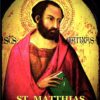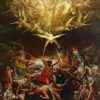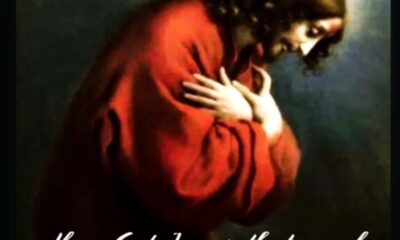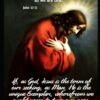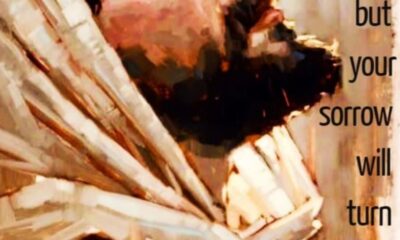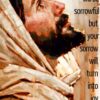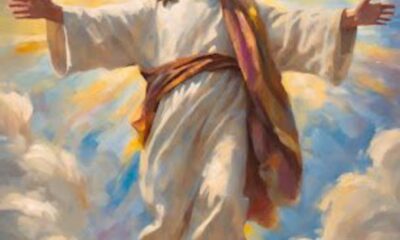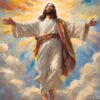Christmas Day – Midnight Mass (Year C)
Isa 9.1-7; Ps 95; Titus 2.11-14; Lk 2.1-14
“Mankind’s true shepherd and its Lord
by shepherd hearts was first adored.”
1. The two greatest events in the earthly life of Jesus Christ, His incarnation and His resurrection, have this in common; they both happened in secrecy, secrecy and silence. At the incarnation, nine months before Christmas, the only created beings aware of what was happening were the archangel Gabriel and of course the humble Virgin herself, Mary of Nazareth. There were no external witnesses to the stupendous miracle of God becoming human. The final outcome of the incarnation is of course resurrection, and the hiddenness of the resurrection was even greater – no witnesses of the event itself. Plenty of witnesses subsequently, but the miracle itself, the actual moment of resurrection, that happened in total hiddenness and secrecy – a secrecy to which only the Three Divine Persons of the Blessed Trinity were privy, a God-filled secrecy which in its own way pointed forwards to another kind of secrecy, a sacramental secrecy which we have come to know as ‘the internal forum.’
2. Given the secrecy which surrounded the actual moment of the incarnation, and given the obscurity and poverty of Christ’s nativity, we might perhaps wonder what justification there is for all the noisy pomp and splendour of our Christmas celebrations, celebrations which we begin tonight and which we should properly continue, in the same spirit, for the next twelve days, the twelve days of Christmas, twelve days of solemn and joyful Christian feasting. We are celebrating explicitly and publicly something which happened in silence and privacy. And we do this for one simple and awesome reason. We are celebrating the birthday of our King. The One Who took flesh in the pure womb of the Blessed Virgin Mary, the One Who was born in the poverty of Bethlehem, the One Who was born in order to die and rise again, that One is none other than the world’s true King, the King of kings, and Lord of lords. It is His royal birth that we celebrate tonight and for the next twelve days. That birth changed this world for ever. No life, on this or any other world, remains unchanged by that nativity.
3. One of the most surprising details in the Gospel which we hear tonight is the shepherds. The shepherds in the cold dark fields were the first to receive the news that the King had been born. “The angel of the Lord appeared to them, and the glory of the Lord shone round them.” Like every detail in the Bible, this detail is there for a purpose. St Luke did not invent the detail of the shepherds. He wrote it down because it was true, and because it was true it has an important and enduring meaning. To understand this meaning we should recall just how far down the social scale shepherds were in those days. In truth, these shepherds, abiding in the fields, were not the elegant cavalieri rustici so charmingly depicted in many an arcadian Christmas card. Such civilized depictions of the shepherds are far wide of the mark. Shepherds in the open fields of Palestine, such as the angel appeared to, were the lowest of the low, both socially and morally. Cut-throats, muggers, Palestine’s low-life bandit riffraff, the dregs of society – such were the shepherds. Certainly not the sort of people one would ever dream of inviting to Christmas dinner, or indeed Christmas anything. And yet, invited they were. In fact they were the first to be invited, personally invited by the angelic messenger, summoned to attend upon the King, to attend the levée, on His birthday.
4. The fact that it was the lowest of the low to whom the angel first announced the good news, this fact is a part of divine revelation, part of the mystery of Christmas. It highlights for us the extraordinary condescension of the incarnate Lord. The King of all creation comes down to earth and takes up residence not in a splendid palàzzo but in a mean little casúpola, not a palace but a hovel. Rather surprisingly, the first public audience that the King gives is to the poorest and shabbiest of country clods, a bunch of peasant shepherds. Those lowly and enraptured swains have so much to teach us. They teach us that there are no human depths into which the Word-made-flesh will not descend, and in descending, sanctify. The lowliest of sinners is invited to hasten through the fields to Bethlehem, to see this thing which has come to pass, God-made-man, enthroned in the swill-trough of dumb brute beasts. “You will find a baby wrapped in swaddling clothes and lying in a manger.” A baby in a manger – could this really be the King of kings? This is the baffling paradox, the high strangeness of Christianity, which turns our world upside down and inside out. This is the paradox we contemplate and celebrate at Christmas – God’s nativity; the divine become human, sovereignty emptied, strength made weak, the palace abandoned, the hovel inhabited.
5. Make no mistake. The Christmas Gospel is certainly not telling us to imitate the cut-throat vagrant life-style of the shepherds. The gospel is reassuring us that we are all invited by the King, whatever our spiritual state, be it never so lowly. Those low-life shepherds were the first public visitors to Bethlehem.
Poor rough sinners, clumsy and unlovely, they were the first externs to absorb the eloquent silence of the crib. The shepherds stumbled into the internal forum of the manger, and there, in that hidden and interior place, the Infant King began His long and patient work of converting, sanctifying and ennobling the hearts of men. It was there that the Lord began to shower His graces upon a frail and needy humanity.
A fountain of sanctifying grace was opened and has never yet ceased to flow, nor will it ever cease; not until the full number of the elect shall have seen the glory of the Lord, not until all have made their way ex partibus infidelium, out of the dank and frozen pastures of pagan lands, and have come to bow the knee before His Majesty, Rex Pacificus, at His hovel in Bethlehem.

